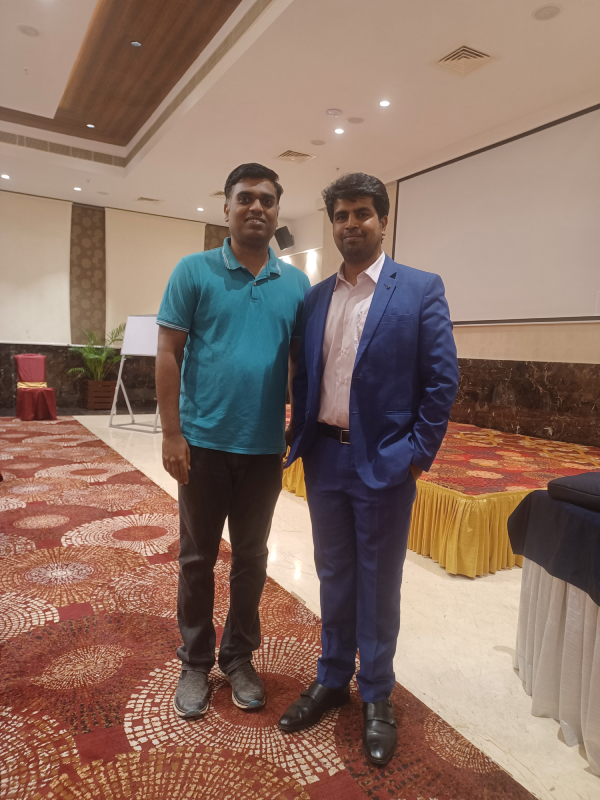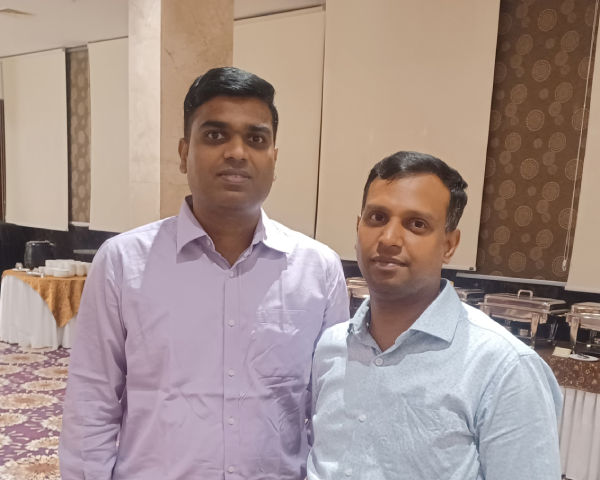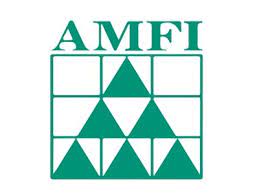I.Mr. Vivek Verma
Mr.Jogendra

I.Mr. Vivek Verma
🌟 Enjoyed a fascinating Q&A session with Mr. Vivek Verma, Head-AP & Telangana at Edelweiss, post his engaging presentation in Hyderabad! Here’s what we discussed:
Q1: Given the ongoing elections, do you think a victory by the currently anticipated party will cause significant market volatility or a major short-term movement, or has the market already accounted for this outcome?
Q2: With the U.S. debt now exceeding $33 trillion compared to its $28 trillion economy, and with IMF warnings, how significant is the risk of a U.S. default?
Q3: How might the U.S. elections at the end of the year affect global markets?
Q4: Are there anchor investors in mutual fund New Fund Offerings (NFOs) similar to IPOs?

Mr.Jogendra from Motilal oswal
Insights from the Motilal Oswal Multi-Cap – NFO Fund Launch: An Evening with Mr. Jogendra Kumar Patra, AVP, Regional Head at Motilal
I was amazed by the knowledge shared by Mr. Jogendar. Here are a few highlights from the meeting, followed by a Q&A session with the speaker.
1.IT/Software Services Exports and Crude Oil Imports: Indian IT/software-related services exports reached 100 billion dollars in the year ending March 2024, which is equivalent to India’s crude oil imports for the same period.
Mr.Jogendra from Motilal oswal
Insights from the Motilal Oswal Multi-Cap – NFO Fund Launch: An Evening with Mr. Jogendra Kumar Patra, AVP, Regional Head at Motilal
I was amazed by the knowledge shared by Mr. Jogendar. Here are a few highlights from the meeting, followed by a Q&A session with the speaker.
1.IT/Software Services Exports and Crude Oil Imports: Indian IT/software-related services exports reached 100 billion dollars in the year ending March 2024, which is equivalent to India’s crude oil imports for the same period.
2.Economic Growth: There has been considerable debate about the effectiveness of economic policies implemented in India between 2014 and 2019. During this period, the Indian markets grew at a Compound Annual Growth Rate (CAGR) of around 10%. Notably, from 2019 to 2024, the market experienced a higher growth rate of 14% CAGR. While this appears to be only a 4% increase, it translates to a 40% growth In the current five-year term compared to the previous one.
3.Diversification and Value Investing:A key takeaway from the meeting was the discussion on diversification. Many experts advocate for diversification as a risk management tool. However, when investing in value-based stocks, a more concentrated portfolio can be maintained. Value-based investing focuses on purchasing stocks at bargain prices. The Multicap fund at Motilal Oswal emphasizes value stocks using valuation methods like Price-to-Earnings (PE) and Discounted Cash Flow (DCF). Consequently, the portfolio is limited to a maximum of 30 to 35 stocks. Although this approach carries higher risk, it also offers substantial returns. Examples include the purchase of Zomato at Rs 46, which has now reached Rs 200, a 300% increase, and Vodafone, bought at around Rs 9 and currently trading at Rs 15, yielding nearly a 60% return.
Q1: Your entry into stocks is commendable. How do you decide when to sell or book profits in the market?
Q2: You mentioned the purchase of Vodafone. Given that the company has good cash flow but negative profits, what was the rationale behind this decision?


